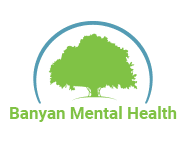OCD and Addiction
It is not uncommon for someone struggling with some kind of mental illness to also be dealing with a substance use disorder. Whether they initially believed that self-medicating their symptoms away was the answer or if they had some kind of mental deterioration from prolonged substance abuse, co-occurring disorders could be debilitating. One such example is the simultaneous presence of OCD and addiction. Banyan Mental Health is looking at the similarities and differences between these two conditions and the treatment options available at our dual diagnosis rehab.
Obsession vs. Addiction
At first glance, these two phenomena of OCD (obsessive-compulsive disorder) and addiction can seem quite similar, with the phrases even being used interchangeably on occasion. In reality, there are distinct differences that will separate whether someone is given one diagnosis or another. For instance, when someone has an obsession, it typically leads them to act out in some sort of ritualistic behavior, also referred to as a compulsion. Some examples of compulsive behaviors include continuously confirming that a door is locked, excessive hand washing, and routinely checking that the oven is off, even when nothing has been cooked that day.
The commonality shared between these instances is that they are all rooted in fear. People that feel the need to perform these rituals likely do so as a means to avoid some kind of unforeseen consequence. The severity of that consequence can range from realistic to unlikely and even downright absurd in some cases. These rituals keep the sufferer in a cycle of fear and reassurance and can become debilitating if not properly addressed.
On the other hand, the American Society of Addiction Medicine (ASAM) defines addiction as “a treatable, chronic medical disease involving complex interactions among brain circuits, genetics, the environment, and an individual’s life experiences.” It makes those affected dependent on a substance or action, typically to experience the pleasurable effects of serotonin, endorphins, and dopamine that those things chemically produce.
Addiction vs. Compulsion
As stated before, compulsions are repetitive behaviors that are driven either by fear or some other kind of strong emotion. While these thoughts and feelings can even begin to manifest physically in some people, they are still primarily driven by a need to calm troubling thoughts rather than a physical addiction. Performing these rituals makes the individual feel safer and can present themselves with everyday activities that, in most cases, would be seen as responsible, like making sure a light is switched off after leaving a room.
For the average person, checking once would suffice to proceed with their day. But someone with OCD could be inclined to check multiple times before they can truly accept that they are not wasting energy. It is even possible for one compulsion to bleed into another, and before a person knows it, they have been stuck trying to leave the house for hours performing typically menial tasks just so that they aren’t in mental anguish once they are gone.
Regarding addiction, someone could be predisposed to such a condition as a result of their biological and psychological makeup. It is a much deeper chemical reaction that will usually happen to help the user forget their current situation. Someone can be addicted to a substance or a behavior, the latter of which can commonly be mistaken for a compulsion. A common example of this is the presence of sex addiction. The key difference is that someone with an addiction likely wants to experience pleasure or relief, while a compulsion is done in order to calm feelings of fear in those suffering from OCD.
Self-Medicating Is Not the Way to Go
Regardless of how debilitating symptoms can be, the mixture of drugs, alcohol, and OCD is almost never a positive one. Even if it seems to be helpful on occasion, there really is no telling how deeply an addiction has rooted itself without the intervention of clinical professionals or what the physical consequences may be. It is entirely possible that OCD and addiction can be triggered by one another, and it highlights the dangers involved with not obtaining the proper care in time.
It is why Banyan seeks to offer the best mental illness treatment in Boca that can effectively guide these individuals toward a life of sobriety, fulfillment, and recovery. Whether you are looking for obsessive-compulsive disorder treatment, treatment for addiction, or both, with a variety of programs, our team of professionals can craft a unique treatment plan that will comprehensively address the symptoms you are experiencing. Patients will also have the ability to participate in a number of engaging therapeutic methods that will not only unpack any unresolved trauma that could be playing a part but also teach you healthier coping mechanisms to employ moving forward.
Don’t continue to let OCD and addiction control your life. Contact Banyan to learn about our residential mental health program and how it can change your life.
Related Reading




